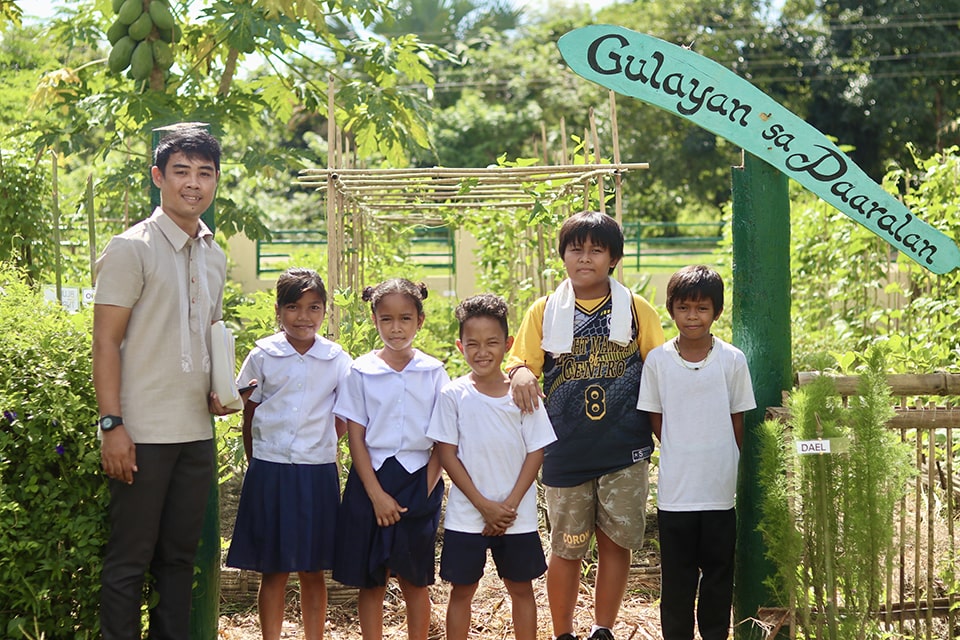 A teacher and the Gulayan sa Paaralan Program (GPP) coordinator from Malbato Elementary School and the students responsible for maintaining their school garden posed for a photo.
A teacher and the Gulayan sa Paaralan Program (GPP) coordinator from Malbato Elementary School and the students responsible for maintaining their school garden posed for a photo.
PALAWAN, Philippines – The Southeast Asian Regional Center for Graduate Study and Research in Agriculture (SEARCA) recently organized an initiative titled, "Assessment and Utilization of School Garden Produce through a Cooking Contest/Recipe Development and Monitoring and Evaluation Activities of School Gardens," as part of the School-plus-Home Gardens cum Biodiversity Enhancement and Enterprise (SHGBEE) in Coron and Busuanga, Palawan. This initiative, designed to improve the nutritional status of children, integrates fresh produce from school gardens into the school-based feeding program (SBFP) of the Department of Education (DepEd). As several crops have reached harvest maturity, SEARCA arranged a cooking contest to encourage collaboration between parents and students in preparing nutritious recipes using locally grown vegetables. This activity not only promotes healthy eating habits but also aims to enhance biodiversity awareness and develop enterprise skills within the community by showcasing the benefits of home and school gardens.
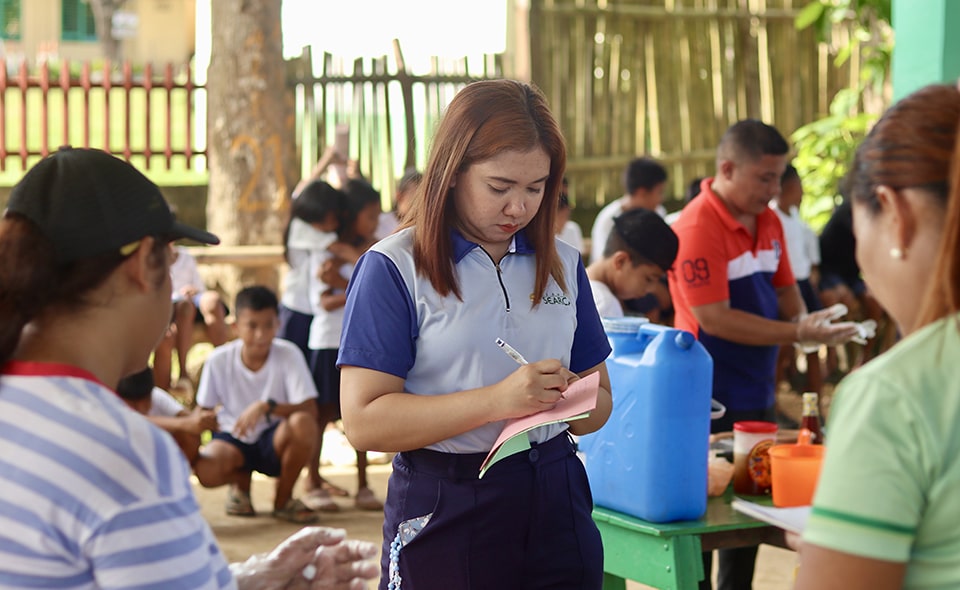 Ms. Anna Gale Vallez, Program Specialist of RTLD, during the Cooking Contest/Recipe Development held at Cheey Elementary School, Busuanga, Palawan.
Ms. Anna Gale Vallez, Program Specialist of RTLD, during the Cooking Contest/Recipe Development held at Cheey Elementary School, Busuanga, Palawan.
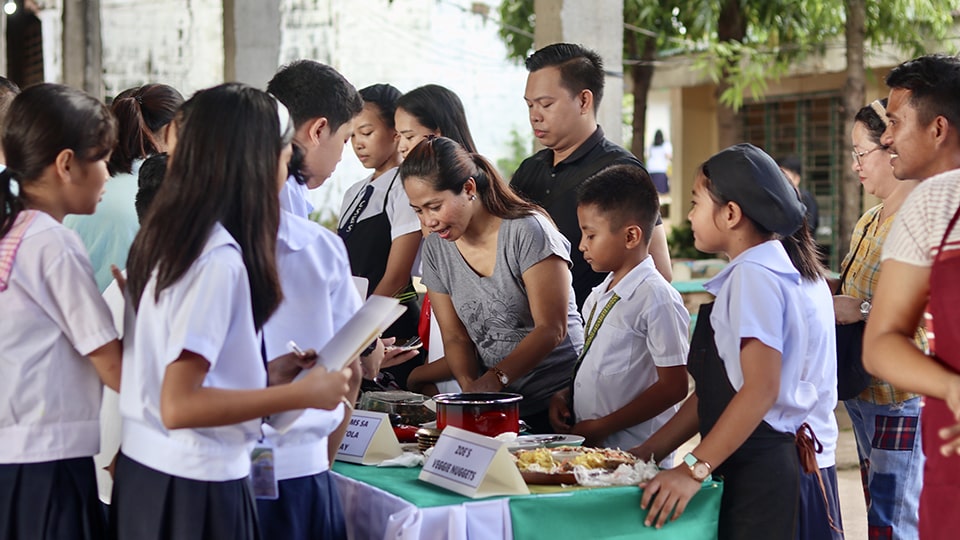 A parent-student team presented their healthy recipes to the student judges during the Cooking Contest at Claudio Sandoval Elementary School.
A parent-student team presented their healthy recipes to the student judges during the Cooking Contest at Claudio Sandoval Elementary School.
The cooking contest was held across nine pilot schools, each maintaining a school garden. Vegetables harvested directly from these gardens are key ingredients in the competition. The contest began at Cheey Elementary School, Salvacion Elementary and National High School, Decalachao Elementary and National High School, Malbato Elementary School, Claudio Sandoval and Claudio Sandoval South Elementary Schools, and Bulalacao Integrated School. The recipes are evaluated based on three main criteria: acceptability, nutritional value, and originality. Student judges assessed the acceptability of each recipe to determine if the flavors appeal to their palates. The School Health Office staff evaluated the nutritional value and content, ensuring the recipes meet the dietary needs of the students, while originality and presentation were judged by SEARCA staff, ensuring the recipes are innovative and visually appealing.
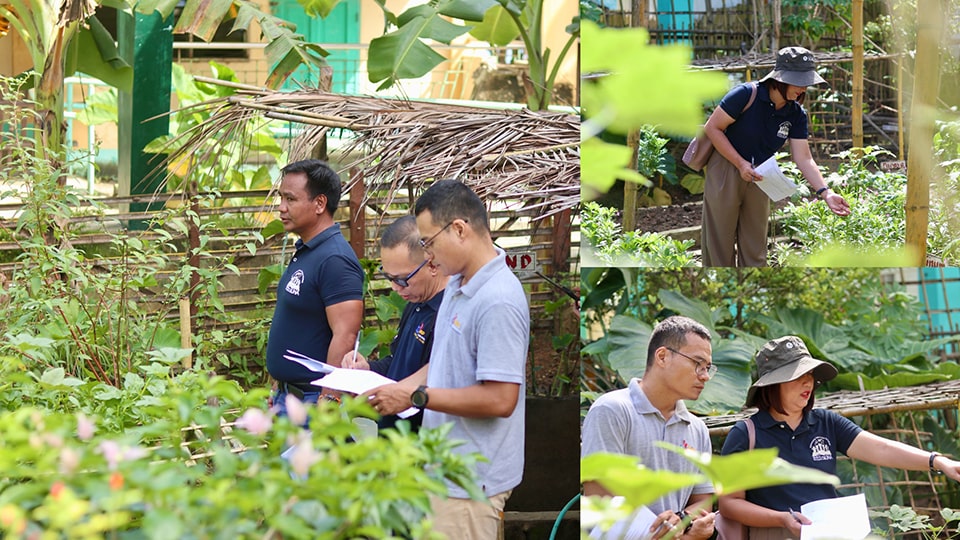 A delegation from DepEd Laguna, along with staff from the School Health Office, served as evaluators for the school gardens.
A delegation from DepEd Laguna, along with staff from the School Health Office, served as evaluators for the school gardens.
Meanwhile, evaluators from the DepEd Schools Division of Laguna conducted a comprehensive assessment of the Gulayan sa Paaralan (school gardens) to review its implementation and maintenance. They examined various elements, such as the types of vegetables cultivated, the structures used for plant support (such as trellises), the practices and techniques implemented to improve garden productivity, and documentation. Additionally, the evaluators assessed the schools' composting practices, nursery areas, and crop diversity. DepEd aims to understand the schools' gardening practices through this assessment and identify successful strategies that could be expanded to other areas.
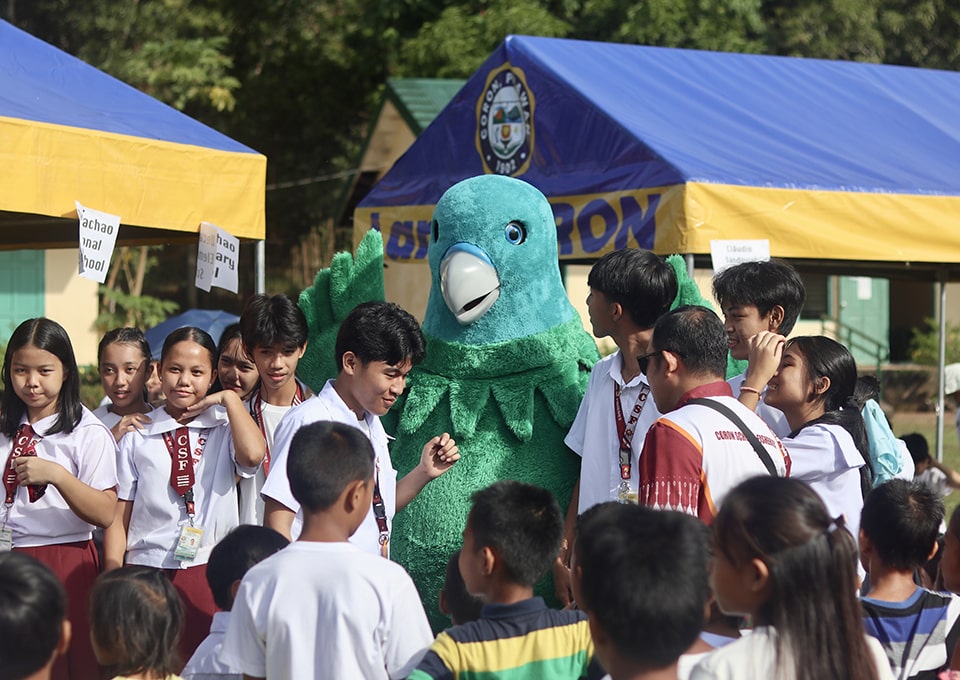 The mascot “Kilit” posing with the students during the 5th Kilit Festival held at Malbato Elementary School.
The mascot “Kilit” posing with the students during the 5th Kilit Festival held at Malbato Elementary School.
On the final day, the 5th Kilit Festival was celebrated, spearheaded by the Regalo ng Kilit Foundation, Inc., under its president, Dr. Manuel Reyes. The event featured various festive activities and competitions involving students and teachers from different schools in Busuanga and Coron. The festival commenced with a lively parade led by the festival's mascot, "Kilit," representing the blue-headed racket-tail or Palawan racket-tail, an endangered parrot species native to Palawan.
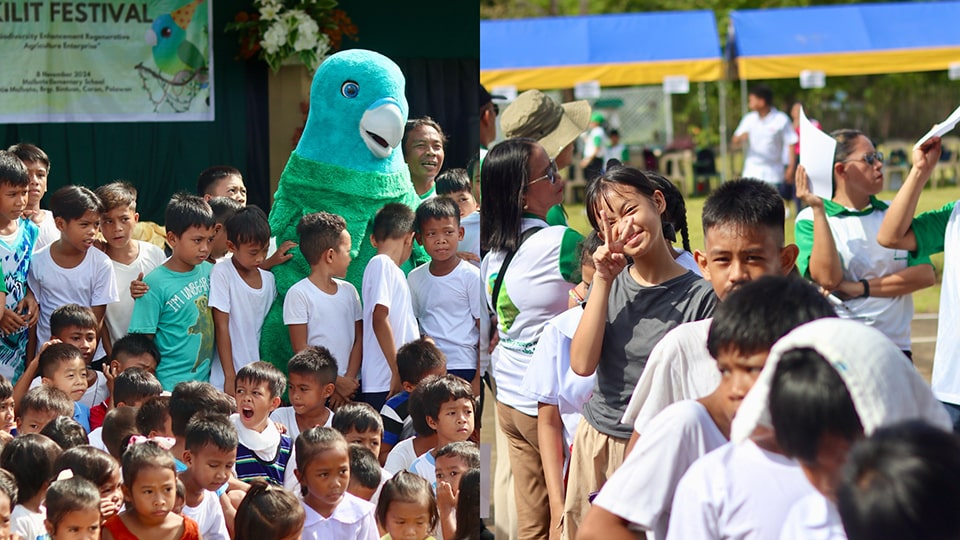 Students and teachers during the celebration of the 5th Kilit Festival held at Malbato Elementary School.
Students and teachers during the celebration of the 5th Kilit Festival held at Malbato Elementary School.
The Kilit Festival is dedicated to raising awareness and promoting advocacy campaigns on wildlife protection, conservation, and sustainable management. Through its activities, the festival aims to educate the community, particularly young people, on the importance of biodiversity preservation and the responsible stewardship of natural resources, emphasizing a commitment to a sustainable future for Palawan's unique ecosystems.
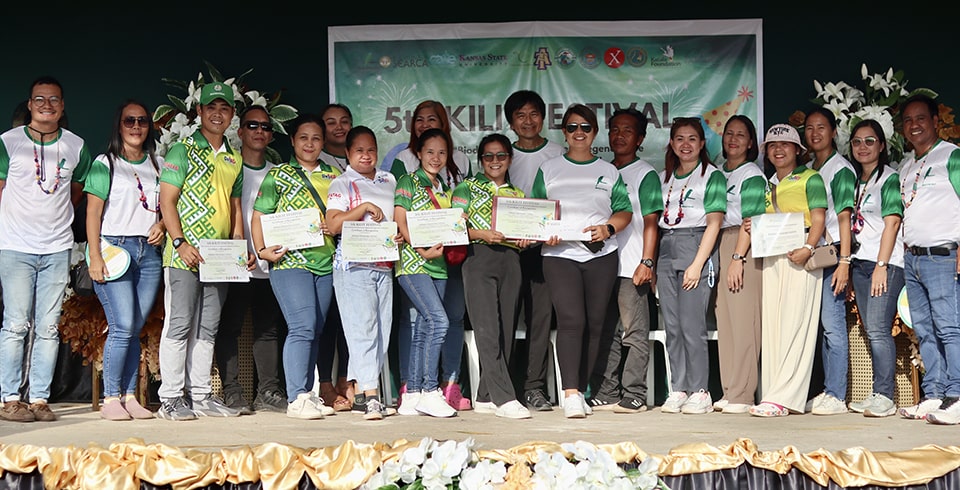 The teachers of Malbato Elementary School, recognized as the Best Implementer of School Gardens, were joined by Dr. Manny Reyes, President of the Regalo ng Kilit Foundation, Inc.; Ms. Anna Gale Vallez, Program Specialist of RTLD; Dr. Lois Clavesillas, Medical Officer of DepEd Palawan; and Ms. Soledad Villanueva, Public Schools Division Supervisor of DepEd Laguna.
The teachers of Malbato Elementary School, recognized as the Best Implementer of School Gardens, were joined by Dr. Manny Reyes, President of the Regalo ng Kilit Foundation, Inc.; Ms. Anna Gale Vallez, Program Specialist of RTLD; Dr. Lois Clavesillas, Medical Officer of DepEd Palawan; and Ms. Soledad Villanueva, Public Schools Division Supervisor of DepEd Laguna.
The festival concluded with announcing winners for the Best School Garden Implementer award. Malbato Elementary School earned the first-place distinction for its outstanding garden implementation and maintenance efforts, showcasing innovative gardening practices and a high sustainability standard. Salvacion National High School was awarded the second place and was recognized for its commitment to garden development and community engagement. Decalachao National High School secured the third place and was commended for its effective garden management and contribution to promoting nutritional education. These awards celebrate the schools' dedication to fostering sustainable practices and enhancing food security through their school gardens, inspiring similar efforts across the region.